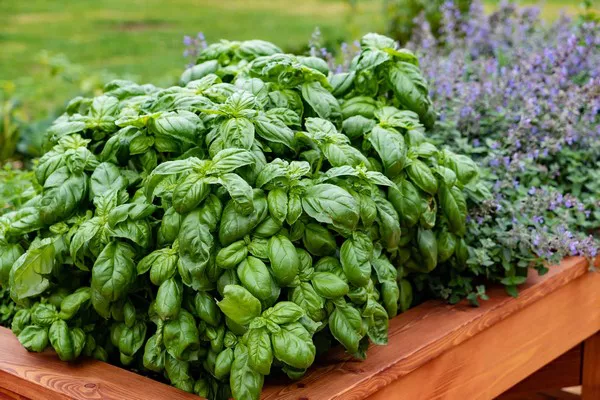Bugs in flower pots can be a persistent nuisance for garden enthusiasts and plant lovers. These uninvited guests can wreak havoc on your beautiful blooms, compromising their health and aesthetic appeal. However, with the right strategies and preventive measures, you can effectively get rid of bugs in flower pots and maintain a thriving garden. In this article, we will delve into various techniques to ensure your flower pots remain bug-free.
Understanding the Bugs in Flower Pots
Before we delve into the solutions, it’s crucial to identify the common culprits that infest flower pots. Bugs in flower pots can include aphids, mealybugs, spider mites, and even ants. These pests are attracted to the moisture and nutrients found in potting soil, making flower pots a prime location for infestations. Understanding the specific bugs infesting your pots will help you choose the most effective eradication methods.
1. Preventive Measures to Keep Bugs at Bay in Flower Pots
Choose the Right Potting Soil: Start with high-quality potting soil that is well-draining. Bugs are less likely to thrive in soil that doesn’t retain excess moisture.
Inspect Plants Before Purchase: When buying new plants for your flower pots, inspect them thoroughly for signs of bugs or disease. Avoid introducing pests to your garden unknowingly.
Use Clean Containers: Prior to planting, ensure your flower pots are clean and free of any residual bugs or their eggs. Sanitizing pots with a diluted bleach solution can help eliminate any lingering pests.
Plant Resistant Varieties: Opt for plant varieties known to be less susceptible to bug infestations. Research and choose plants that naturally repel common pests.
2. Natural Bug Control Methods for Flower Pots
Neem Oil: Neem oil is a natural insecticide that can effectively deter and kill many bugs in flower pots. Dilute it with water and spray it on your plants regularly.
Beneficial Insects: Introduce beneficial insects like ladybugs and parasitic wasps to your garden. They can help control bug populations by preying on them.
Companion Planting: Plant bug-repelling herbs and flowers like basil, marigolds, and mint alongside your ornamental plants. Their fragrances can deter bugs.
Homemade Remedies: Create homemade bug repellents by mixing ingredients like garlic, cayenne pepper, and dish soap with water. Spray these concoctions on your plants to keep bugs at bay.
3. Chemical Bug Control in Flower Pots
While natural methods are preferred, chemical insecticides can also be effective in extreme infestation cases. When using chemicals, exercise caution and follow the instructions on the product label carefully. Always consider the potential impact on beneficial insects and the environment.
4. Maintaining Proper Watering Practices
Overwatering can create an ideal environment for bugs in flower pots, particularly those that thrive in damp conditions. Ensure you water your plants correctly by:
Watering at the Base: Water directly at the base of the plants to avoid wetting the foliage excessively, which can attract bugs.
Using a Saucer: Place a saucer under your flower pots to catch excess water and prevent the pot from sitting in standing water.
Watering Consistently: Establish a regular watering schedule to maintain soil moisture levels consistently. Avoid erratic watering, which can stress plants and make them more susceptible to infestations.
5. Regular Inspection and Maintenance
Frequent monitoring of your flower pots is crucial to detect bug infestations early. Here’s how to keep bugs at bay with regular checks:
Inspect Leaves and Stems: Examine your plants’ leaves and stems for any signs of bug damage, such as yellowing, wilting, or discolored spots.
Look for Bugs: Keep an eye out for the bugs themselves. Check the undersides of leaves and along stems, where many pests like to hide.
Remove Affected Leaves: If you spot bug-infested leaves, remove them promptly to prevent the infestation from spreading.
Prune Overgrowth: Trim excess growth to improve air circulation, reducing the risk of bugs and fungal diseases.
6. Quarantining Infested Plants
If you discover bugs in one of your flower pots, it’s essential to isolate the affected plant to prevent the infestation from spreading to other pots. Quarantine the infested plant away from your healthy ones until the problem is resolved.
7. Using Organic Fertilizers
The type of fertilizer you use can also influence the presence of bugs in flower pots. Organic fertilizers promote healthier soil and plant growth, making your plants less susceptible to pests. They release nutrients slowly and encourage beneficial microorganisms in the soil, helping to maintain a balanced ecosystem in your pots.
8. Maintaining a Clean Garden Environment
Maintaining a clean and organized garden can go a long way in preventing bug infestations in your flower pots. Here are some tips to help you achieve this:
Remove Garden Debris: Regularly clean up fallen leaves, weeds, and other organic debris from around your flower pots, as they can provide hiding spots for bugs.
Properly Dispose of Pruned Material: Dispose of pruned branches and leaves away from your garden area to avoid attracting bugs back to your pots.
Sterilize Garden Tools: Keep your gardening tools clean and sterilized to prevent the transfer of bugs from one pot to another.
Conclusion
Bugs in flower pots can be a persistent problem, but with the right strategies and preventive measures, you can maintain a bug-free garden environment. By understanding the bugs that infest flower pots, implementing natural and chemical control methods when necessary, and practicing proper plant care, you can ensure your flowers thrive and your garden remains a pest-free haven. Regular inspection and maintenance, coupled with a clean garden environment, will help you enjoy the beauty of your flower pots without the interference of unwanted bugs. Remember, a healthy garden is a happy garden.


